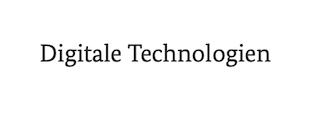fashionsort.ai
fashionsort.ai uses AI to automate textile sorting for a sustainable circular economy
The textile industry is currently undergoing a profound transformation due to the global climate crisis, the increasing scarcity of resources and the escalating demand for sustainable business practices. The ‘fast fashion’ culture, which promotes quickly changing styles and continuously updated wardrobes, is especially hard on the environment. By the same token, second-hand markets are not being sufficiently utilised to reuse clothing and prolong its lifespan. This results in the loss of valuable materials and potential, which in turn leads to lower value creation. This is where the circular economy comes into play.
fashionsort.ai aims to develop solutions to maximise efficiency and added value in textile sorting and thus facilitate the use of a circular economy within the textile industry. So far, sorting capacity in Europe remains low and sorting processes for clothing that can still be worn are entirely manual. This project was developed to digitalise these processes using AI. Various technologies are used for this purpose.
The use of image recognition and RFID integration makes it possible to automatically and efficiently capture and handle textiles. Textiles are to be automatically identified and then classified based on their properties using artificial intelligence trained on large data sets. This AI technology can be used to identify textiles more quickly and precisely while speeding up the sorting process. Another important aspect of the project is the development of a software framework to optimise sorting fractions.
By leveraging digital technologies such as machine learning and data analysis, the software can take various factors into account, including the material composition, the condition of the textiles and market demand for them. Based on this information, the software should be able to determine the appropriate sorting fractions to maximise yield and efficiency. The project focuses on closely linking the hardware with the development of digital technologies. Adaptation to digital technologies and the use of multi-sensor and actuator technology will make it possible to further develop existing concepts.
The fact is: Europe’s used textile sorting industry will need to increase its capacity from the current 1.4 million tonnes per year to around five to seven million tonnes if all the textiles collected in Europe are to be sorted in the domestic market. The technologies under development, intended for commercialisation through the launch of a start-up, hold tremendous potential to sustainably support this transformation over the long term. With this project, fashionsort.ai is also making a contribution to achieving the European Union’s sustainability targets.
Consortium:
- circular.fashion UG
- TU Berlin
- Remondis
- Recommend this page:
- Print view
